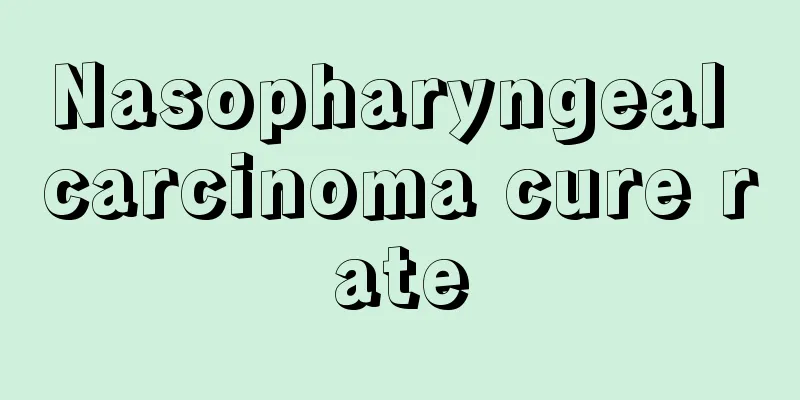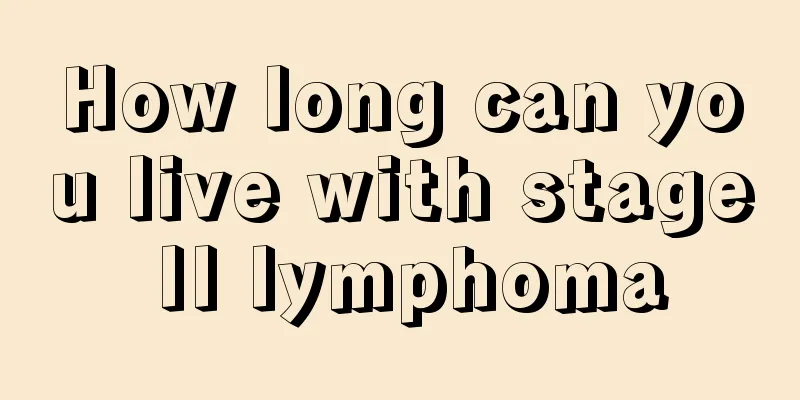Symptoms of heart disease

|
Coronary heart disease is now a relatively common disease. After the onset of coronary heart disease, the patient's heart will often feel uncomfortable, with dull pain in the precordial area and twitching pain like tension. The pain lasts for a short time and can be relieved after rest. The patient will feel chest tightness and shortness of breath for a long time. The chest pain will occur after exercise, and there will be pain in many parts of the body. Main symptoms of coronary heart disease 1. When you are tired or mentally stressed, you will experience dull and tight pain behind the sternum and in front of the heart. The pain lasts for a short time and will be relieved by itself after rest. 2. Symptoms of chest tightness, palpitations, and shortness of breath occur during physical activity, which generally improve during rest. 3. Having symptoms such as headache, toothache, leg pain, etc. during exercise. 4. Having chest pain and palpitations after having a full meal, in cold weather or watching thrilling movies. 5. Feeling of palpitations, chest tightness, shortness of breath or chest pain during sexual intercourse or straining to defecate. 6. When the pillow is low when sleeping at night, there will be a feeling of chest tightness and shortness of breath. Symptoms of chest pain, palpitations, and difficulty breathing may suddenly appear when sleeping soundly or lying flat during the day. At this time, sit up or stand up immediately and the symptoms will be relieved. 7. Repeated irregular pulse and symptoms of tachycardia or bradycardia. Treatment of acute coronary heart disease 1. Angina pectoris: Stop physical activities immediately, rest on the spot, and try to eliminate triggers such as coldness and emotional excitement; immediately dissolve 1 tablet of nitroglycerin or isopropylamine sublingually. If there is no relief, dissolve it again after 5 to 10 minutes. If 3 consecutive dissolutions are ineffective, and chest pain persists for more than 15 minutes, there is a possibility of myocardial infarction, and the patient should be sent to a hospital or other emergency facility immediately; take 3 mg of diazepam orally, and if conditions permit, oxygen should be inhaled for 10 to 30 minutes. Patients with coronary heart disease should carry medicines such as nitroglycerin with them and take them immediately if chest pain occurs, and be careful not to use expired medicines. Stable angina pectoris will be relieved after resting and taking nitroglycerin. Unstable angina pectoris is a serious and potentially dangerous disease and should be sent to the hospital for treatment and close observation immediately. 2. Myocardial infarction: The mortality rate of acute myocardial infarction is high. More than half of the patients die before hospitalization. Most deaths occur within 1 hour after onset, generally caused by ventricular fibrillation. Therefore, on-site first aid measures and rapid transfer to hospital are crucial. If any of the following conditions occur in high-risk patients (those with hypertension, diabetes, or a history of angina pectoris): chest discomfort, extreme fatigue, difficulty breathing, especially accompanied by profuse sweating, dizziness, palpitations, or a feeling of impending death, myocardial infarction should be highly suspected and the patient should be immediately sent to the nearest medical institution that has the conditions to perform an electrocardiogram, cardiac monitoring, direct current defibrillation, or intravenous thrombolysis. At the same time, stay calm and do not cause panic and fear to the patient. Take dissolve nitroglycerin, or quick-acting heart-saving pills, Guanxin Shuhe pills, etc. If conditions permit, intramuscular injection of papaverine, pethidine, and diazepam can be given. Maintain ventilation and oxygen inhalation. If there are no contraindications, take 300 mg of aspirin orally immediately. If malignant arrhythmias such as ventricular tachycardia and ventricular fibrillation occur, direct current defibrillation should be given immediately. Once cardiac arrest occurs, artificial respiration and chest compression should be performed immediately for cardiopulmonary resuscitation. |
<<: Symptoms of scleroderma on the soles of feet
>>: Will milk moss disappear on its own?
Recommend
Will the tongue coating turn yellow in chronic gastritis?
Chronic gastritis is a stomach inflammation probl...
What medicine should I take for bloating? It turns out these medicines are effective for bloating
Stomach bloating is a condition that people often...
What causes the lower left eyelid to twitch
Our previous view on eyelid twitching was that le...
Can the bad sound be changed?
There is nothing you can do about your unpleasant...
Tips to relieve tooth pain
Although toothache is not a big problem, it can m...
What should I do if a cigarette butt burns and causes blisters?
Cigarette butt burns and blisters are a common pr...
The protrusions of the clavicles on both sides are different
Under normal circumstances, the two sides of the ...
Can dairy products prevent liver cancer? You can eat these three types of food to prevent liver cancer
Liver cancer is a type of cancer that we need to ...
Those delicacies that were created due to the producer's mistakes
Most classic dishes are created by chefs after ma...
What are the nursing contents for patients with bone cancer
The first thing that bone cancer patients should ...
Symptoms of knee osteochondritis
The knees are a very fragile part of the human bo...
What to do if you have a persistent cough due to lung cancer
What should I do if I have a persistent cough due...
What is the diagnosis method for thyroid cancer
What is the diagnosis method for thyroid cancer? ...
Is hypertrophic cardiomyopathy hereditary?
Then, congenital cardiomyopathy mostly occurs in ...
I feel like there are bugs moving in my anus. What's going on?
We eat whole grains every day and are under great...









